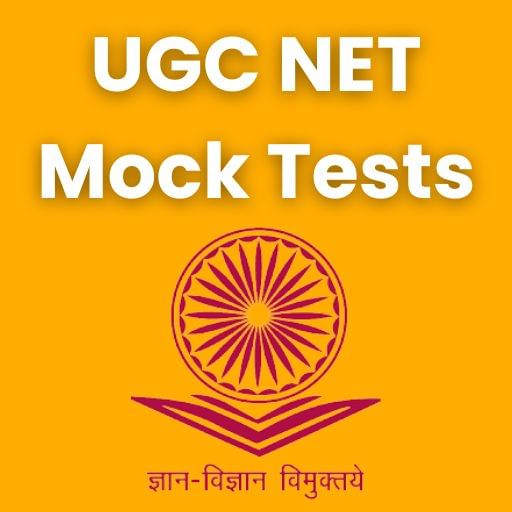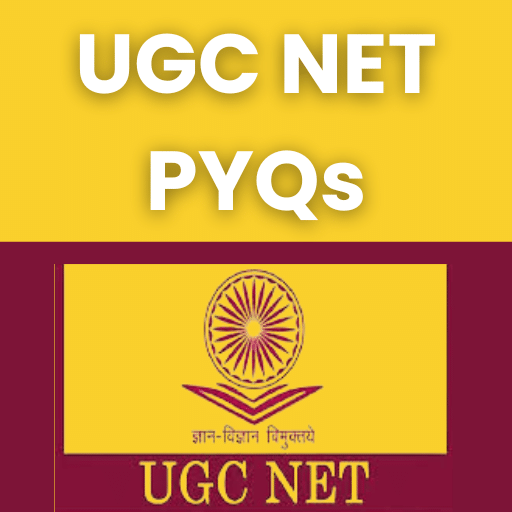Verbal Communication - Communication Notes
Introduction
Verbal communication is any communication that uses words to share information with others. These words may be both spoken and written.
 Verbal Communication
Verbal Communication
Here the sender gives words to his feelings, thoughts, ideas and opinions and expresses them in the form of speeches, discussions, presentations, and conversations.
Types of Verbal Communication
1. Oral Communication
Words are the most common symbols of communication and that too in oral form both in organizational and non-organizational context. Man is the only species gifted with language and the use of language is primarily in speech for writing comes afterwards. It is primarily oral communication that brings members of a family, neighbours, friends and colleagues together.

Characteristics of Oral Communication
- Flexibility: The main feature of oral communication is, it is more flexible than any other means of communication. Oral communication or oral messages can be changed easily depending on the situation.
- Instantaneous two way process: Oral communication is a speedy two way process. Messages in oral communication travel back and forth instantaneously without any loss of time, making it highly interactive.
- Direct exchange of message: In oral communication, information is exchanged between the sender and receiver directly in the form of face-to-face conversation, telephonic conversation, meeting, conference, interview etc.
- One off’ exercise: Oral Communication is a one off exercise. It is not repeated and there is no written record to which any references can be made.
- Day to day language: The use of common, unconventional, day to day conversational language is considered to be the most effective in oral communication.
- Presence of sender and receiver: The presence of both, the sender and receiver is required at the same time, for oral communication to take place.
- Principles: Accuracy, clarity and brevity are the three principles of oral communication. This can be achieved by using the right language, which the listener will understand and by sequencing the speech in a logical manner.
- Effect of body language and speech modulation: Oral communication is highly effected by body language and voice modulations. A high or low pitch voice or gestures made during speech, greatly influence the quality of oral communication.
- It cannot be erased or mended: It is said, spoken words are like arrows shot from a bow, which cannot be taken back. While in written communication, it is possible to erase and/or rectify the language, the same is not possible in oral communication.
Methods of Oral Communications
- Face to Face Communication: Face-to-face communication implies that two or more individuals are physically present to communicate with each other. Communication can flow both ways in these situations. Immediate feedback has the advantage of making clarification possible.
- Video Conferencing: Internet-enabled video conferencing is an electronic version of face-to-face communication. Business meetings, interviews and other urgent interactions among several distantly located individuals can be effectively conducted without requiring participants to move from their respective places.
 Video Conferencing
Video Conferencing
- It is more complex than a phone as it involves the use of camera for images and phones for speech and sound communicated back and forth over the Internet. As with face-to-face communication, video conferencing calls for a whole range of oral skills, such as clear and natural speaking, attentive listening, and positive body language.
- Interview: An interview is a meeting where one person or a panel of persons (interviewers), put forward questions to another person (interviewee) , these are more formal conversations, where the purpose may be to assess the knowledge of the interviewee.
- Telephone conversation: Telephone communication is the transmission of information, over significant distance using a phone. This is not a face-to-face conversation rather a person-to-person conversation where nobody sees other but hears each other and interacts instantly. Clarity of speech and skillful use of voice are important determinants in such communication.
- Grapevine: The grapevine is a communication system or process which is informal communication system. It is comprised of gossip and rumor. More and wide information can be transmitted through grapevine communication system.
- Negotiations: Settling an issue by mutual understanding is called negotiation. Sometimes, negotiation may be on a one to one basis, in the case of salary hike, extension of contracts and meeting demands of trade unions etc.
- Meetings: Meeting is usually a formal gathering to resolve and discuss various issues. There is a fixed agenda of most meeting which may be small with one or two persons or a large one, like meeting of shareholders, etc.
- Lecture/ Speech: A lecture /speech is an oral presentation intended to present information or teach people/audience about a particular subject.
- Presentations: A presentation has a face to face setting, in which a well prepared talk is given on a specific topic, delivered to an interested and involved audience. Visual aids are used to enhance the presentation.
 Presentation
Presentation
- Conferences/seminars/workshops: A group deliberation on various topics, issues are held in conferences, seminars and workshops.
Advantages of Oral Communication
- Easy Communication: Oral communication is the easiest one as it saves time and cost involved in decoding the ideas into words.
- Effective: Oral communication is more effective as in face-to-face communication there is also use of facial expressions and movement of the parts of the body. Therefore the message is passed in true sense.
- Instant Feedback: In oral communication, there is immediate feedback which helps the sender to avoid some problems. It checks emotional feelings, values and perception impact of the message.
- Facility of Informal Communication: Oral communication can be formal or informal. Informal communication allows communication of feelings, and views which cannot be communicated in written form.
- Time saving: Oral communication is a time-saving device.
- Effective tool of persuasion: Oral communication is the most effective tool of persuasion as it lends a personal touch to the whole talk. Resolving a conflict will not be possible in the absence of oral communication.
- Effective tool of group communication: Oral communication is very effective in interacting with groups. The speaker can immediately understand the group’s reaction and arrive at a satisfactory conclusion by putting his views across and exchanging points of view.
- Economical: Oral communication is economical, both in terms of money and time. It saves the money, spent on stationery.
- Only way out during emergency: At the time of exigencies, where immediate action is to be required, it is not possible to rely on written communication.
Disadvantages of Oral Communication
- Lack of Proof: Oral communication has a significant demerit that there is no proof of what has been communicated.
- Distorted Meaning: The more people a message must pass through, the greater the potential distortion.
- Lack of Authenticity: Sometimes, oral communication may lack authenticity.
- Possibility of misunderstanding: Oral messages lead to misunderstanding if the speaker has not carefully organized his thought or the listener misses the message on account of in attentiveness. While in a written message, he can read it again if he has missed something, it is not possible in case of oral messages.
- Unsuitable for long messages: Much depends upon the length of the message. If it is long, it is not suitable for oral transmission and it could lead to a vital piece of information getting dropped or misconstrued.
- Difficulty in assigning responsibility: It is difficult to assign responsibility or anything going amiss or any mistake occurring on account of an omission or commission in oral communication.
- Physical barriers: Physical barriers like noise, environment, seating arrangement, technical faults of mike, telephone, etc., negatively affect the oral communication.
- Time Consuming: Sometimes, oral communication becomes time-consuming process because both the parties to the communication do not adhere to the actual and precise subject-matter. Many more items enter the communication process which may not be relevant for communication.
- Less Organized: Unlike written communication which is organized and contain information point to point, oral communication is less organized which results in confusing information to the recipient resulting in failure of the communication process.
 |
Download the notes
Notes: Verbal Communication
|
Download as PDF |
2. Written Communication
Written communication include memos, letters, fax transmissions, electronic mail, instant messaging, periodicals, notices placed on bulletin boards, quotations, reports, forms, agenda, diaries, house magazines, manuals or any other device that is transmitted via written words or symbols.

Characteristics of Written Communication
- A Creative Exercise: Written communication is a creative activity that requires a lot of imagination and effort to arrive at the finished product. While oral communication is spontaneous, written communication is based on conscious effort.
- Most formal type of communication: Usually most of the informal, casual conversation or friendly conversation is done orally. Whenever there is need for formal communication, it is the written mode that is preferred.
- Fewer Cycles: Written communication has fewer cycles than oral or face- to-face communication. Oral communication is a multiple cycle event. Oral messages get immediate response that leads very often to further exchange of words.
- Time factor: The sender takes his own time in formulating the message which in turn takes quite some time to reach the receiver .The receive will take his own time in filtering it through his mind and responding to it.
- Used for documentation: Written communication is mostly used for documentation. Written Communication acts as a permanent record and can prove very useful for future reference. For instance in organizational context, previous orders and decision can serve as guidelines for future decision. Previous year’s reports are beneficial for formulating new polices and fixing current targets. The content of written communication is accepted as evidence in case of any litigation.
- Used for circulation of information: This is used for circulation of information in the organization. Written communication makes it possible to circulate information without distortions and misrepresentations.
- Conventional by nature: There are not many rules of grammar for oral communication, as there are for written communication. Written communication is conventional in the sense that it has to follow definite pattern as per rules laid down by the language.
- Presence of both sender and receiver is not necessary at the same time: It is an important feature of written communication where the presence of just the sender or the receiver is sufficient at a given point in time, to continue the process of communication.
Principles of Effective Written Communication
In many ways, good writing is good writing regardless of its particular purpose, but the following characteristics are especially important for business writing.
- Brevity: The message should be as brief as possible. Here brevity means compiling the message with limited words and sentences. If this principle is followed, both sender and receiver can save time and cost. There are various common phrases and syntax structures that use unnecessary words: these should be avoided unless they are definitely needed for disambiguation. Some examples include these:
- “in order to” (use “to”, or “so as to” if that would be unclear)
- “for purposes of X” (use “for X purposes”, “to achieve X”, or even just “for X”)
- “in terms of Y” (use “regarding Y” or the adjective form of Y earlier in the sentence)
- “any variety of” (use “any type of” or just “any”)
- multiple sentences with clauses (for completeness) that could be eliminated if the sentences were combined with a semicolon (the semicolon is often underused)
- “on the other hand” (use “however”, “but”, “yet”, or (if feeling adventurous) “contrariwise”)
- “as a result of Z, X”/”X occurred as a result of Z” (use “because of Z, X” or “due to Z, X”, or even rephrase to “Z caused X”) etc.
- Clarity: There is a time and a place for creative figures of speech and poetic turns of phrase, but rarely is a business letter that time or place. The priority in business writing is the effective communication of specific information. The sender must convey the message clearly and confidently so that the receiver can easily understand the message clearly and confidently so that the receiver can easily understand the meaning of the message.
- Courtesy: Courtesy is consideration of other people’s feeling. In written communication the style, the manner and the choice of words reflects the courtesy of the writer. It should make the reader comfortable, attentive and prompt in responding. The choice of words and style of message reflect the consideration for the feelings and needs of the reader.
- Concreteness: Concreteness is an aspect of communication that means being specific, definite, and vivid rather than vague and general. The message must be concrete or exact so that the receiver can read it clearly.
Advantages of Written Communication
- Authenticity: Written communication is authentic whether it is in the form of orders or organizational manuals. When any things come in writing, people tend to take it more seriously and it becomes binding on them. Therefore, it has much force as compared to oral communication.
- Proof for Future Reference: When printed, both the sender and receiver have a record of the communication and the message can be stored for an indefinite period. If there are questions concerning the content of the message, it is physically available for later reference.
- Communication to Distant Places: Written communication is useful in sending and receiving messages at distance places where the contact may not be possible through alternative sources. Thus, it saves time and cost to that extent. Presently, fax system and internet have provided facilities to send written messages to distant places.
Disadvantages of Written Communication
- Costly: Written communication is a costly affair as compared to oral communication. Cost involved is both in terms of time and money.
- Overemphasis on Formalization: Written communication becomes formal means. While some degree of formalization is essential, its overemphasis hampers efficiency. In bureaucratic organizations where too much emphasis input on formal written communication, inefficiency emerges because the efforts are directed towards maintaining written records rather than achieving results.
- Lack of Secrecy: Sometimes, communication requires secrecy particularly when the information is a sensitive one. In the written form, the message comes in record and leakage of that may be detrimental to the organization concerned. Of late, there have been cyber-crimes in the form of decoding the confidential information of others transmitted through internet which is in written form.
|
6 videos|19 docs|5 tests
|
FAQs on Verbal Communication - Communication Notes
| 1. What are the different types of verbal communication? |  |
| 2. Why is verbal communication important in everyday life? |  |
| 3. How can one improve their verbal communication skills? |  |
| 4. What are the common barriers to effective verbal communication? |  |
| 5. How does verbal communication differ from non-verbal communication? |  |































